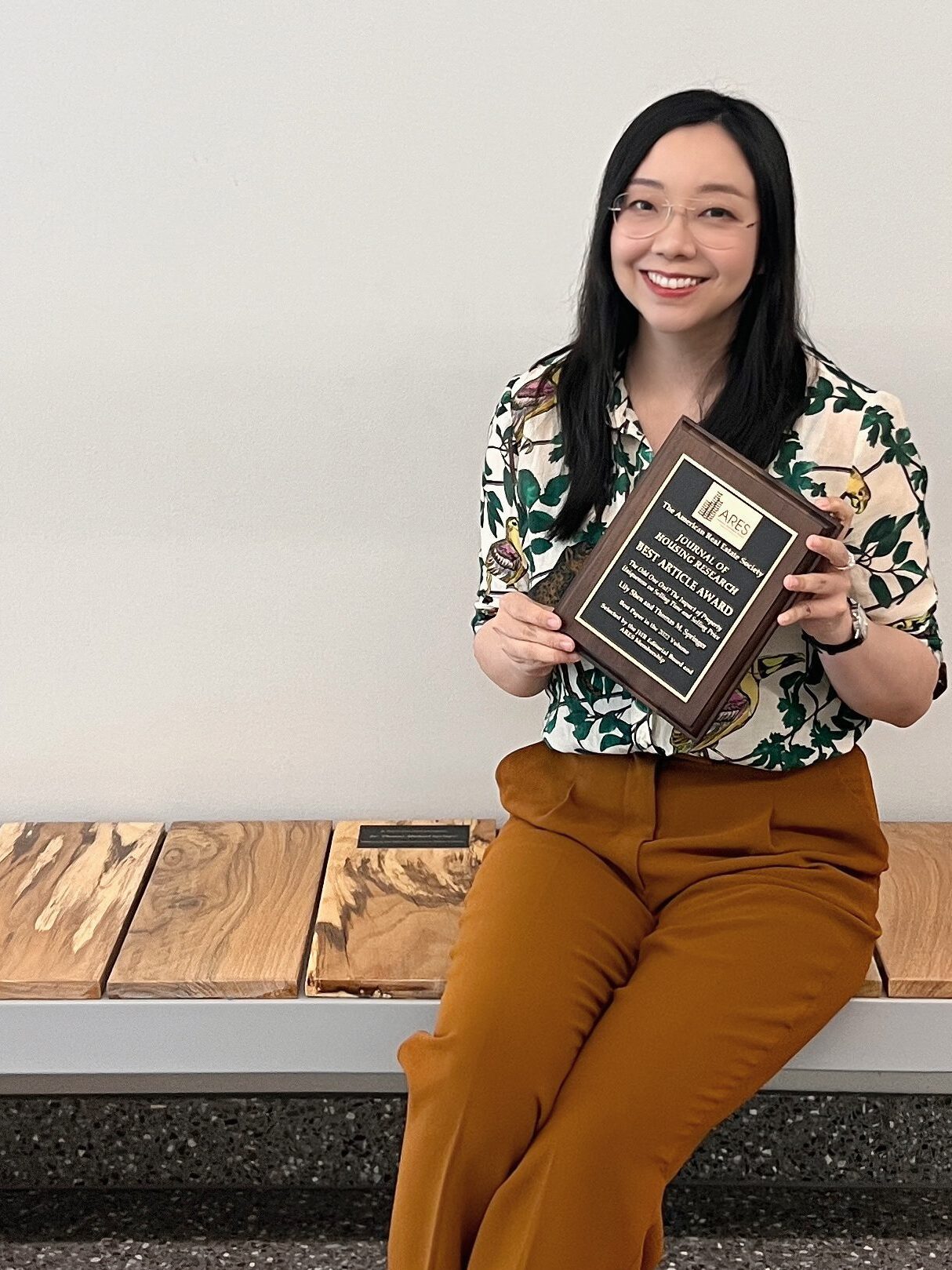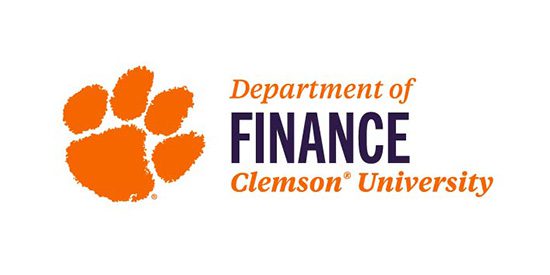Researchers in the Wilbur O. and Ann Powers College of Business were recognized for a study using AI to determine how property uniqueness impacts home prices and time on the market.
In April 2023, Lily Shen, an associate professor with the Department of Finance in the Wilbur O. and Ann Powers College of Business, was recognized by the American Real Estate Society with the Best Article Award for the paper “The odd one out? The impact of property uniqueness on selling time and selling price,” which was published in the Journal of Housing Research in 2022.

In the article, Shen explains how she and colleague Thomas Springer, another Department of Finance professor at Clemson, used innovative machine learning techniques that allowed them to develop measures of residential real estate uniqueness based on written advertisements. Using factors other than price, their research provides a fresh perspective on understanding the dynamics of the housing market and how uniqueness can impact both the selling price and the time spent on the market for single-family home sales.
Two types of home uniqueness were examined in this study. Market uniqueness refers to how a property stands out compared to other houses for sale at the same time. Universal uniqueness determines the home’s distinctiveness relative to houses within the same sub-market.
After studying Multiple Listing Service property descriptions for more than 40,000 single-family home sales in the metropolitan real estate market of Atlanta, Georgia, from 2010 to 2017, Shen and Springer uncovered several real estate revelations:
- A one standard deviation increase in market uniqueness corresponds to a significant 13% ($48,490) increase in sale prices. This price boost comes at the cost of a slight delay in the transaction, or approximately 1.7 additional days on the market.
- A one standard deviation increase in universal uniqueness leads to an 11% ($41,030) increase in sale prices, accompanied by approximately three additional days on the market.
Shen explained that this research reveals the distinct effects of uniqueness on sale price and time on the market – key information for real estate professionals, investors and policymakers – and that the findings also showcase the potential of machine learning in the field.
The American Real Estate Society award for this research holds special meaning for Shen and her colleagues; Springer passed away unexpectedly just two days before the paper was accepted for publication.
“Tom helped me publish my first paper as a junior researcher, and together we published his last one,” explained Shen. “His legacy will live on through his research and the countless lives he touched. I will treasure his guidance and wisdom for the rest of my career.”
Get in touch and we will connect you with the author or another expert.
Or email us at news@clemson.edu

